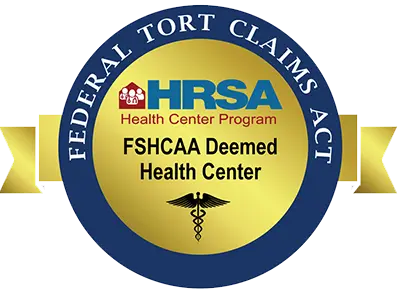News & Blogs
Stay up to date on the latest news from Fetter Health Care Network by signing up for our newsletter and viewing updates from our team below.
News & Blogs
Stay up to date on the latest news from Fetter Health Care Network by signing up for our newsletter and viewing updates from our team below.
Want to stay informed about what’s going on with
Fetter Health Care Network?
Sign up for our quarterly e-newsletter, which features updates on our centers, services and providers.
By submitting this form, you are consenting to receive marketing emails from: . You can revoke your consent to receive emails at any time by using the SafeUnsubscribe® link, found at the bottom of every email. Emails are serviced by Constant Contact
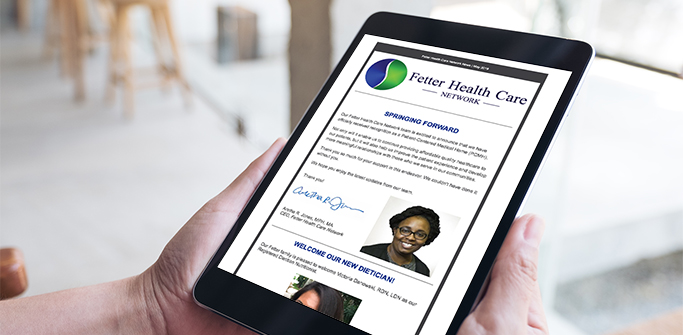
Want to stay informed about what’s going on with
Fetter Health Care Network?
Sign up for our quarterly e-newsletter, which features updates on our centers, services and providers.
By submitting this form, you are consenting to receive marketing emails from: . You can revoke your consent to receive emails at any time by using the SafeUnsubscribe® link, found at the bottom of every email. Emails are serviced by Constant Contact
Latest News

January 27, 2022
As much as we wish it weren’t, stress is a regular part of the human experience. From tight deadlines at work to managing relationships, life can be filled with situations that may cause stress and anxiety when under the right (or wrong) conditions.
But just because stress may be unavoidable, that doesn’t make it unmanageable. With the right tools and know-how, a person can manage – and in some instances avoid – the stresses of life.
1. Learn from previous experiences and plan ahead.
A spilled drink, a last-minute cancellation, or something more serious, like an unforeseen diagnosis: Unless you are a time traveler or can see the future, some stresses are unknowable.
However, while we cannot change the past, we can learn from it. Practicing time management can assist you in avoiding the tight deadlines you may have experienced on a previous project. Address concerns in the moment if you see them leading to more stressful complications later on.
By using lessons learned from past experiences, you can analyze developing situations and make adjustments to minimize stress as much as possible.
2. Avoid stressful situations.
Believe it or not, some stresses really are avoidable. For example, if you know that your regular route to work is prone to traffic stops, you can plan for an earlier start from your home. Avoid long lines and enjoy your lunch break by packing instead.
Knowing yourself and what triggers you is the key to practicing proper avoidance. Once you are able to identify your personal stresses, you can begin to plan around them and steer clear of them whenever possible.
Also, remember the response “No.” is also a powerful tool. When asked to participate in a situation you know will cause stress, sometimes declining to participate is the best option.
3. Develop a regular exercise routine.
Staying healthy and active is not only great for your physical health. It can offer a boost to your mental health as well! Studies show that those engaged in occasional and regular exercise sessions saw noticeable relief in their stress levels. Those who developed a habitual exercise routine were more likely to see long-lasting and beneficial effects on peak cortisol levels.
Exercise can include anything from taking a short afternoon walk to engaging in some intense weight lifting. Remember, everyone’s comfort level is different. Listen to your body when developing your routine to make sure not to over-exert or injure yourself.
4. Try using meditative techniques.
Peace can be found in the mind as well as the body. In a 2013 report conducted by the National Center for Complementary and Integrated Health (NCCIH), studies showed that those who went through an 8-week mindfulness training program were left with reduced stress-induced inflammation.
Adopting meditative techniques are simple and can be practiced almost any time in any location. Methods can include mindfulness meditation, deep breathing exercises, yoga, and more.
5. Practice positive self-talk.
We all talk to ourselves from time to time, and, in many cases, it may be that we are our own harshest critic. Positive self-talk is the practice of changing the way one communicates with themselves to promote calmness and reduce stress by shedding a positive light on situations initially negatively perceived.
- Instead of saying, “I hate when this happens,” say, “I can do this. I’ve handled situations like this before.”
- Instead of saying,” I’ll never be able to do this,” say, “I’ll try my best. I can do this.”
Consistent practice of positive self-talk is the best way to reinforce this way of positive thinking.
6. Disconnect from or limit media consumption.
Keeping up to date on the world around you can be beneficial, but constant exposure to traumatic events can be stressful on one’s psyche. If you find yourself stressing over the events of the world, it may be time to form limitations on your media consumption.
Rather than spending time on endless social media scrolling and the 24-hour news cycle, try instead filling that time with alternate activities that you enjoy, like reading a book, painting, or taking a nature walk. It is important to stay informed, but when information overload begins to take a toll on one’s mental health, it may be time to take a step back.
7. Connect with others.
Finding your own chain of support is crucial for healthy stress management. Whether it is a friend, partner or family member, being able to openly communicate with another about life’s worries helps relieve one’s mind from internal stress and opens up the possibility for an outside perception or assistance with the stressor.
Finding your chain of support is an important step in managing your stress. If you are without others to rely on, it may be helpful to join a support group or seek out aid from a professional.
When should you seek professional help?
If you find your issues persist, or discover a disruption in sleeping and eating patterns, or thoughts of suicide and self-harm, you should reach out and schedule an appointment with a mental health care professional. A behavioral health care medical specialist or psychiatrist will be able to assist you in discovering the root of your issue and help you develop a plan to treat and cope with current and future stresses.
Live Better With Fetter
Fetter Health Care Network is committed to the continuous upkeep and improvement of our community members’ mental and physical health, offering a wide range of services, including behavioral health evaluations.
To schedule your appointment with your local Fetter Health Care Network team, visit FetterHealthCare.org/request-an-appointment.

January 24, 2022
8 Things You Should Know About Diabetes
Whether it’s you or a loved one, receiving that first diagnosis can seem overwhelming, but rest assured, diabetes is not a debilitating disease. With proper care and management, along with some potential lifestyle changes, life with diabetes will continue.
Regardless of if you are newly diagnosed or are just doing a bit of research, here are a few things you should know about diabetes.
Diabetes is a chronic health condition.
Diabetes is a chronic health condition in which a person’s pancreas develops an inability to properly or completely produce the hormone insulin.
In a person without diabetes, the pancreas will produce insulin as needed to help the body efficiently regulate blood sugar levels. When the pancreas develops problems, it can result in insufficient production of insulin. This stops the cells from turning glucose in the blood into energy, resulting in high blood sugar levels, leading to some severe complications.
There are two types of diabetes.
Though they fall under the same umbrella, those living with diabetes are classified under one of two kinds: Type 1 and Type 2. Understanding which type of diabetes you have is key to forming the best management plan for you.
One way to tell the difference between the types is by recognizing the degree to which the pancreas is still able to produce insulin.
Type 2 diabetic pancreases still produce insulin.
With Type 2 diabetes, the pancreas remains functional but cannot sufficiently produce the body’s insulin. The organ either does not make enough insulin, or it is unable to use the insulin it does produce properly.
Type 2 diabetes is a progressive disease in which an individual’s body develops a resistance to the insulin that they do produce, causing the pancreas to increase production of the hormone for a demand it can’t keep up with.
This insufficient supply of insulin leaves the body’s cells unable to use the glucose for the energy the way it needs, leaving it to remain present in the blood and resulting in higher blood sugar levels.
People with Type 1 diabetes are insulin-dependent.
In Type 1 diabetes, the pancreas is no longer producing insulin. This leaves cells unable to convert the glucose in the blood to get the energy they need.
This form of diabetes comes about as a result of the body’s immune system turning on the insulin-producing cells found in the pancreas. Over time, these damaged cells are worn down, restricting the body’s ability to produce its own insulin.
Because the pancreas has completely stopped producing insulin in this case, people with Type 1 diabetes must compensate for its absence by manually introducing the insulin into the body. This can be done with either insulin injections or the use of an insulin pump.
The perfect diabetic diet does not exist.
In a five-year study conducted by a panel of scientists, doctors, diabetic educators, and dieticians, results showed no one diet is best suited for all people with diabetes.
Just like your personality, your body’s reaction to food is unique to you. As a newly diagnosed diabetic, you will need to do some homework to determine how different foods affect your blood sugars.
The American Diabetes Association (ADA) recommends cutting back on added sugars and refined grains while including lots of non-starchy vegetables as an ideal choice for a diabetic diet.
A diabetic nutritionist can help you to analyze your glucose patterns and discover the best diet for you. The ADA’s Diabetes Plate Method can also be helpful for those looking for guidance.
Exercise is your friend!
Developing a dedicated exercise routine can sometimes seem like an impossible task. Still, adopting a healthy diet and taking your medications, regular exercise is an essential tool for properly managing your diabetes.
Physical activity helps increase your cells’ sensitivity to insulin, making it work more effectively. It also helps with weight loss which can improve blood sugar levels in both Type 1 and Type 2 diabetics.
However, it is also important to remember that while exercise is a great way to help manage diabetes, excessive exercise can also cause drops in blood sugar levels. It is important to pay attention to your body during these activities so that you can correct any fluctuations at the moment they happen.
Mismanaged diabetes can affect other parts of your body.
Diabetes may be caused by an issue with the pancreas, but it’s important to know the far-reaching effects that can result from poor control over this disease.
Over time, long-term repercussions can be caused due to frequent and uncontrolled high blood sugar levels. These include damage to the body’s various organs: diabetic retinopathy in the eyes, problems with the liver and damage to the nerves and the vascular systems, which can lead to an increased risk of heart attack and stroke.
Due to the possibility of major health complications such as these, regular appointments and check-ins with your endocrinologist (diabetic specialist) and health care provider are essential.
You are not alone!
Though your new situation may seem impossible at first, it’s important to remember that you are not in this alone. According to the CDC, 34.2 million Americans are living with diabetes and another 88 million American adults are considered prediabetic.
There are countless resources available to help you learn more about this disease and how to manage it. There are also communities and organizations such as the ADA with a wealth of information to help you navigate life with diabetes.
Receiving Medical Care at Fetter Health Care Network
If you are in need of affordable medical care in the Lowcountry, look no further than Fetter Health Care Network. Fetter is the oldest federally qualified health center in the state, providing quality health and dental services for over 53 years.
Along with our other services, Fetter offers an array of specialized health and wellness programs designed specifically for patients with diabetes, high blood pressure, hypertension and more to help you live a happy, healthy life.
At Fetter, we offer medical services to all patients, regardless of their insurance status or ability to pay. With various clinics throughout Berkeley, Charleston, Colleton and Dorchester Counties, residents from almost any area of the Lowcountry can reach a Fetter clinic for medical care. For more information, request an appointment today.
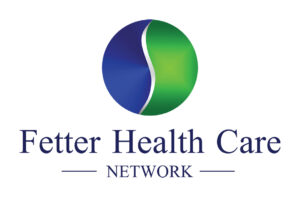
January 18, 2022
Fetter Health Care Network selected to participate in COVID-19 therapeutics program
Fetter Health Care Network (Fetter) has been selected by the federal government to participate in the COVID-19 Therapeutics Program, providing the opportunity to administer oral antiviral medication for patients experiencing mild to moderate COVID-19 illness, following the issuance of Emergency Use Authorization from the Food and Drug Administration (FDA). In partnership with the Health Resources and Services Administration and the Department of Health and Human Services, Fetter will launch this effort on Wednesday, Jan. 19 at several of its sites throughout the Lowcountry.
“Our top priority at this time is to ensure underserved communities affected by COVID-19 have easy access to FDA-authorized or approved COVID-19 oral antiviral pills,” said Aretha Powers, DHA, CEO of Fetter. “Throughout the pandemic, our team has intentionally focused on caring for individuals and communities who have been disproportionately affected by the pandemic, including those experiencing homelessness, migratory agricultural workers, public housing residents, minority communities, rural residents, elderly and those with limited English proficiency. As we step into this next phase of serving our communities, this mission will remain.”
Fetter will adhere to the FDA’s eligibility recommendations when assessing whether patients medically qualify to receive COVID-19 antiviral medication. Fetter will conduct a rapid antigen test on symptomatic patients and a medical provider will determine proper treatment based on various criteria including age, vaccination status and past medical history. Fetter will also uphold its standards to ensure no patient is denied service due to an individual’s inability to pay and will continue its commitment to providing care for patients who are uninsured, underinsured, insured and those who have Medicaid and Medicare.
In an effort to increase access to treatment, Fetter will offer free COVID-19 testing and antivirals to individuals who qualify at locations throughout Charleston, Berkeley, Dorchester and Colleton Counties based on the following schedule:
Charleston Family Health Center | 51 Nassau Street, Charleston, SC 29403 | Monday – Friday | 8 – 11 a.m.
Enterprise Pediatrics Health Center | 2047 Cornstock Ave. Charleston, SC 29405 | Monday – Thursday | 8 – 11 a.m.
Thaddeus J. Bell, MD Family Health Center | 130 Varnfield Dr. Summerville, SC 29483 | Monday, Wednesday, Friday | 8 – 11 a.m.
Elijah Wright Family Health Center | 1681 Old Hwy. 6, Cross, SC 29436 | Tuesday, Wednesday, Friday | 8 – 11 a.m.
Walterboro Family Health Center | 302 Medical Park Drive #111, Walterboro, SC 29488 | Wednesday, Thursday, Friday | 8 – 11 a.m.
Johns Island Family Health Center | 3627 Maybank Hwy., Johns Islands SC 29455 | Tuesday & Wednesday | 8 – 11 a.m.
Hollywood Family Health Center | 5225 Highway165, Hollywood, SC 29449 | Thursday & Friday | 8 – 11 a.m.
About Fetter Health Care Network
For more information on the COVID-19 Therapeutics program, visit the website of the U.S. Department of Health & Human Services. To learn more about Fetter, its range of services, COVID-19 vaccination clinics and more, visit FetterHealthCare.org.
Fetter Health Care Network is a Federally Qualified Health Center (FQHC) chartered as a 501(c)(3) nonprofit in the State of South Carolina in 1975. Fetter provides comprehensive services for insured, uninsured and underserved residents in Berkeley, Charleston, Colleton and Dorchester Counties. Today, Fetter Health Care Network has 27 different sites which includes mobile units, medical laboratories and pharmacies.
Fetter Health Care provides a “Good Faith Estimate” for health care upon request to the uninsured and those choosing to not use insurance. To learn more, visit our Billing & Insurance page.
Fetter Health Care Network is a Health Center Program grantee under 42 U.S.C. 254b, and a deemed Public Health Service employee under 42 U.S.C. 233(g)-(n). This health center receives HHS funding and has federal Public Health Service (PHS) deemed status with respect to certain health-related claims, including medical malpractice claims, for itself and its covered individuals.
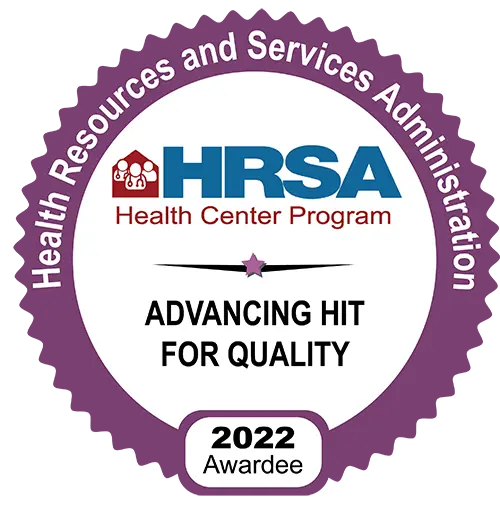
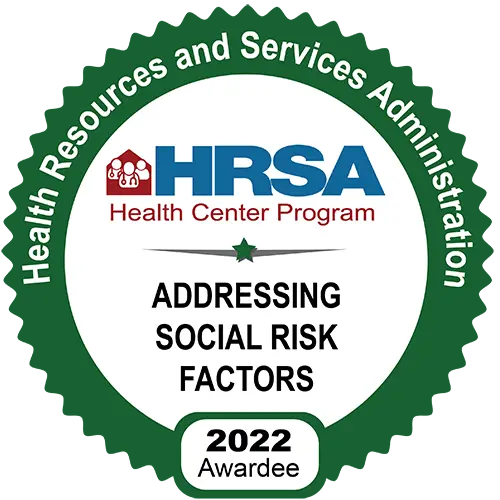


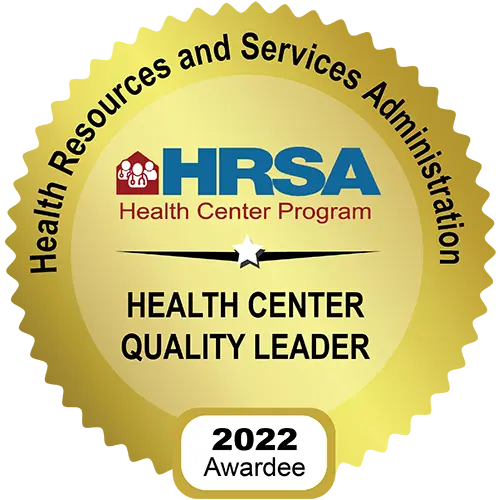


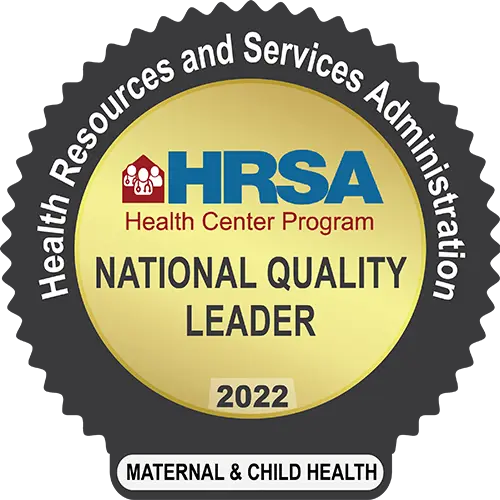












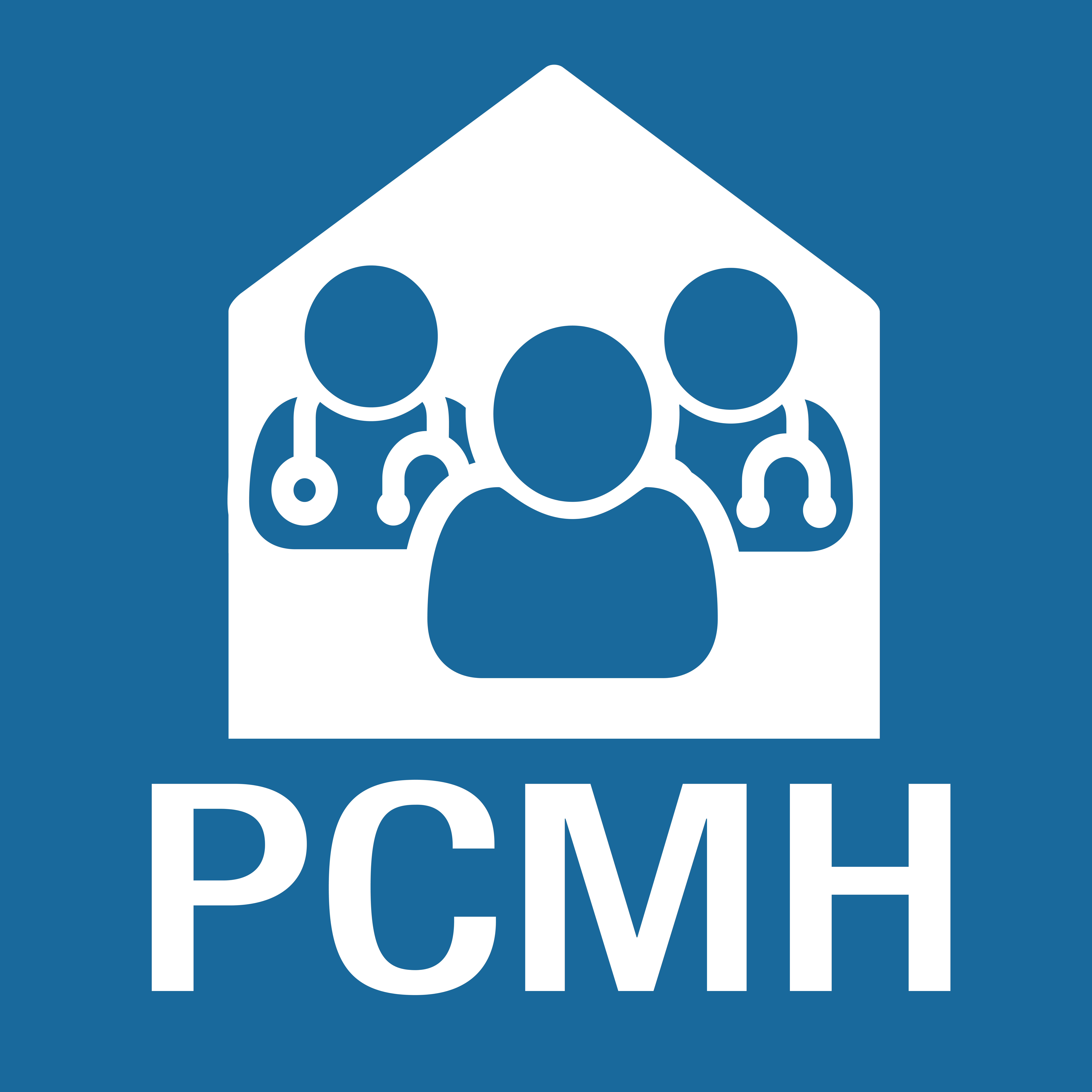


51 Nassau Street Charleston, SC 29403 Phone 843-722-4112
Quick Links
About Us
Contact Us
Locations
Donate
Privacy Policy
Terms of Use
Fetter Health Care provides a “Good Faith Estimate” for health care upon request to the uninsured and those choosing to not use insurance. To learn more, visit our Billing & Insurance page.
Fetter Health Care Network is a Health Center Program grantee under 42 U.S.C. 254b, and a deemed Public Health Service employee under 42 U.S.C. 233(g)-(n). This health center receives HHS funding and has federal Public Health Service (PHS) deemed status with respect to certain health-related claims, including medical malpractice claims, for itself and its covered individuals.

